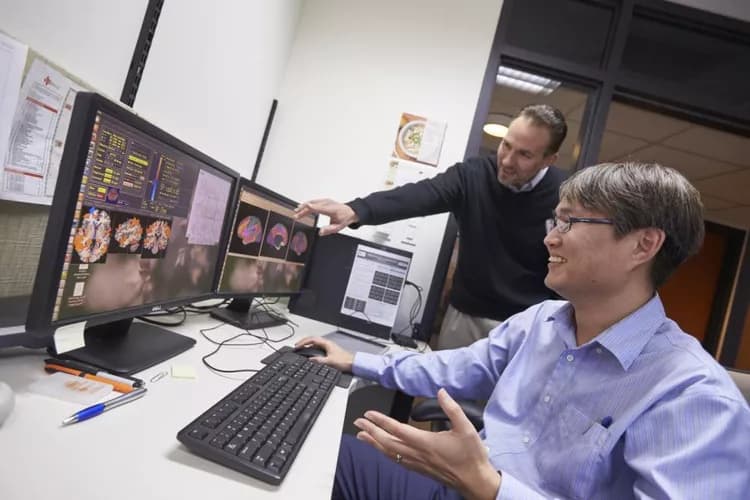
Brain Connectivity Disruptions May Explain Cognitive Deficits In People With Brain Injury
Cognitive impairment following a traumatic brain injury (TBI) is common, often adversely affecting quality of life for those 1.7 million Americans who experience a TBI each year. Researchers at the Center for BrainHealth at The University of Texas at Dallas have identified complex brain connectivity patterns in individuals with chronic phases of traumatic brain injury which may explain long term higher order cognitive function deficits.
A study recently published in the Journal of International Neuropsychological Society found that individuals who are at least six months post-injury exhibit between-network, long-range and inter-hemispheric connectivity disruptions. Specifically, scientists observed TBI-related connectivity disruptions in the default mode and dorsal attention networks and the default mode and frontoparietal control networks; interactions among the networks are key to achieving daily life goals.
"Cooperation between the default mode network, dorsal attention and the frontoparietal control networks is key to controlling internal trains of thought and achieving tasks in changing environments," said Kihwan Han, Ph.D., study lead author and post doctoral research associate at the Center for BrainHealth. "Interactions among these networks are intricately intertwined and critical to daily life tasks such as planning, learning and problem solving. This work suggests that cognitive deficits may be a result of reduced efficiency in brain-network communications."
For the study, researchers analyzed MRI scans of 40 TBI individuals with those of 17 healthy individuals matched for gender, age and years of education. Participants were ages 19 to 45. While all individuals in the TBI group were at least six months post-injury at the time of the study, the average length of time since injury was eight years with no history of any significant, clinically-diagnosed neurological or psychiatric disorders prior to their TBI.
"Much research has focused on separating out individual brain networks," said Daniel Krawczyk, Ph.D., principal investigator, associate professor of cognitive neuroscience and cognitive psychology at the Center for BrainHealth and Debbie and Jim Francis Chair at The University of Texas at Dallas. "This is the first study of its kind to show the intercorrelations among different networks and disruptions among them in individuals with TBI."
"If key brain networks cannot interact in a normal way, the brain becomes inefficient," Krawczyk explained. "Our future research will examine how networks can be improved or enhanced, even after a traumatic brain injury, with cognitive intervention."
The above post is reprinted from materials provided by Center for BrainHealth. Note: Materials may be edited for content and length.
Disclaimer: DoveMed is not responsible for the adapted accuracy of news releases posted to DoveMed by contributing universities and institutions.
Primary Resource:
Han, K., Chapman, S. B., & Krawczyk, D. C. (2016). Disrupted Intrinsic Connectivity among Default, Dorsal Attention, and Frontoparietal Control Networks in Individuals with Chronic Traumatic Brain Injury. Journal of the International Neuropsychological Society: JINS, 22(2), 263-279.
Related Articles
Test Your Knowledge
Asked by users
Related Centers
Related Specialties
Related Physicians
Related Procedures
Related Resources
Join DoveHubs
and connect with fellow professionals

0 Comments
Please log in to post a comment.